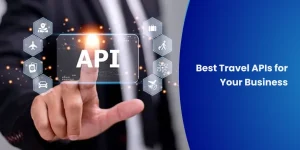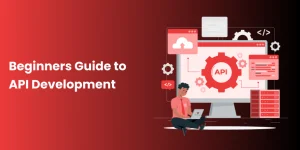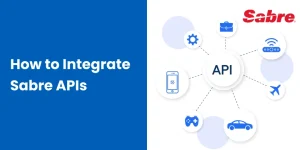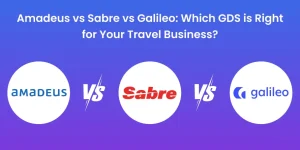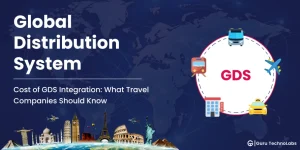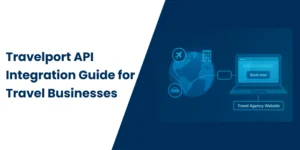Amadeus API Integration For Your Travel Platform: Benefits, Process, and Best Practices
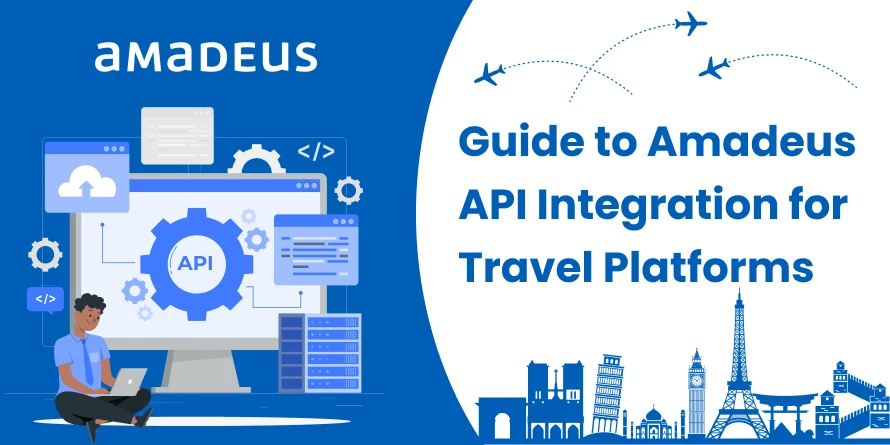
Amadeus, a Madrid-based travel technology leader, has one of the most trusted Global Distribution Systems (GDS) providers in today’s travel industry. By connecting thousands of airlines, hotels, car rental companies, and other providers, Amadeus enables travel agencies and booking platforms to deliver real-time availability and seamless booking experiences to their customers.
What makes Amadeus especially valuable for travel agencies and OTA startups is its powerful API integration. With Amadeus APIs, you can directly access a vast ecosystem of flights, hotels, and travel services, giving your platform the ability to compete with larger OTAs while streamlining back-end operations.
For small-to-medium travel businesses, integrating Amadeus APIs isn’t just about technology, it’s about expanding inventory, improving customer satisfaction, and increasing revenue opportunities. In this guide, we’ll walk you through how Amadeus API integration works, and what it means for your travel platform. Let’s Get Started.
What is the Amadeus API?
The Amadeus API is a set of web services that allows travel agencies, OTAs, and booking platforms to directly connect with Amadeus’ powerful Global Distribution System (GDS). Instead of manually managing supplier contracts or fragmented systems, the API acts as a bridge, giving your platform real-time access to flights, hotels, car rentals, and other travel services, all in one place.
For travel businesses, this means less complexity in operations and more focus on selling. With Amadeus APIs, you can deliver fast, accurate search results, streamline bookings, and offer customers a smooth, reliable travel experience.
From a performance perspective, Amadeus APIs are built to handle high-volume, real-time requests with low latency. Amadeus Flight api and hotel search responses are typically returned within milliseconds, depending on request complexity and network conditions. This ensures faster search results and reduced booking friction, especially critical for OTAs handling peak traffic or mobile users.
Key Features of the Amadeus API:
- Real-time global inventory: Access flights, hotels, car rentals, and more.
- Comprehensive booking flows: From search to reservation across multiple travel services.
- Scalable integration: Works seamlessly with booking engines, apps, and third-party platforms.
- Massive reach: Connects to hundreds of airlines and thousands of hotel properties worldwide.
- Ancillary services: Offer add-ons like seat selection, baggage, and upgrades.
In short, as top GDS providers in the market, Amadeus API equips travel agencies and startups with the same advanced tools used by major OTAs, helping you stay competitive, improve customer satisfaction, and unlock new revenue opportunities.
What Amadeus API Offers to Travel Businesses?
Amadeus provides flexible API solutions with their global distribution system designed to help travel agencies, OTAs, and platforms of all sizes streamline operations and deliver better booking experiences.
Whether you’re a startup building your first travel app or an established agency scaling globally, Amadeus offers two main options: Self-Service APIs and Enterprise APIs.
1. Self-Service APIs – Best for Startups & Small Agencies
Amadeus’ Self-Service API is designed for smaller businesses, startups, or travel platforms looking for a simple, cost-effective way to integrate travel content without heavy technical resources. This API allows travel companies to quickly access and offer flight, hotel, and car rental data while managing bookings with minimal complexity.
Key Functionalities
- Quick setup with user-friendly interfaces and documentation.
- Access to real-time flight, hotel, and car rental availability.
- Offers flexibility to personalize travel offerings and search functionalities.
- Perfect for businesses looking to grow without major infrastructure changes.
Pricing & Usage Notes:
- Pay-as-you-go pricing with a free monthly request quota
- Clear rate limits applied per application to ensure fair usage and platform stability
- Costs scale predictably based on actual API consumption, helping startups control expenses
- Upgrade paths available as traffic and booking volumes increase
2. Enterprise APIs – Built for Large-Scale Travel Businesses
Amadeus’ Enterprise APIs are designed for larger travel companies and enterprises that require a more robust, scalable solution. These APIs offer advanced features, providing businesses with the tools to manage complex workflows, handle large volumes of bookings, and create a comprehensive travel experience for their customers.
Key Functionalities
- Comprehensive data access: flights, hotels, cars, ancillaries from global suppliers.
- Advanced customization: tailor workflows and services to enterprise needs.
- Scalability: built to handle millions of bookings and heavy traffic.
- Omnichannel support: integrate across websites, mobile apps, and third-party platforms.
- Dedicated support: expert assistance during integration and ongoing operations.
With these two offerings, Amadeus allows travel companies to choose the right API solution based on their size, resources, and business goals, ensuring that they can scale effectively while meeting customer expectations.
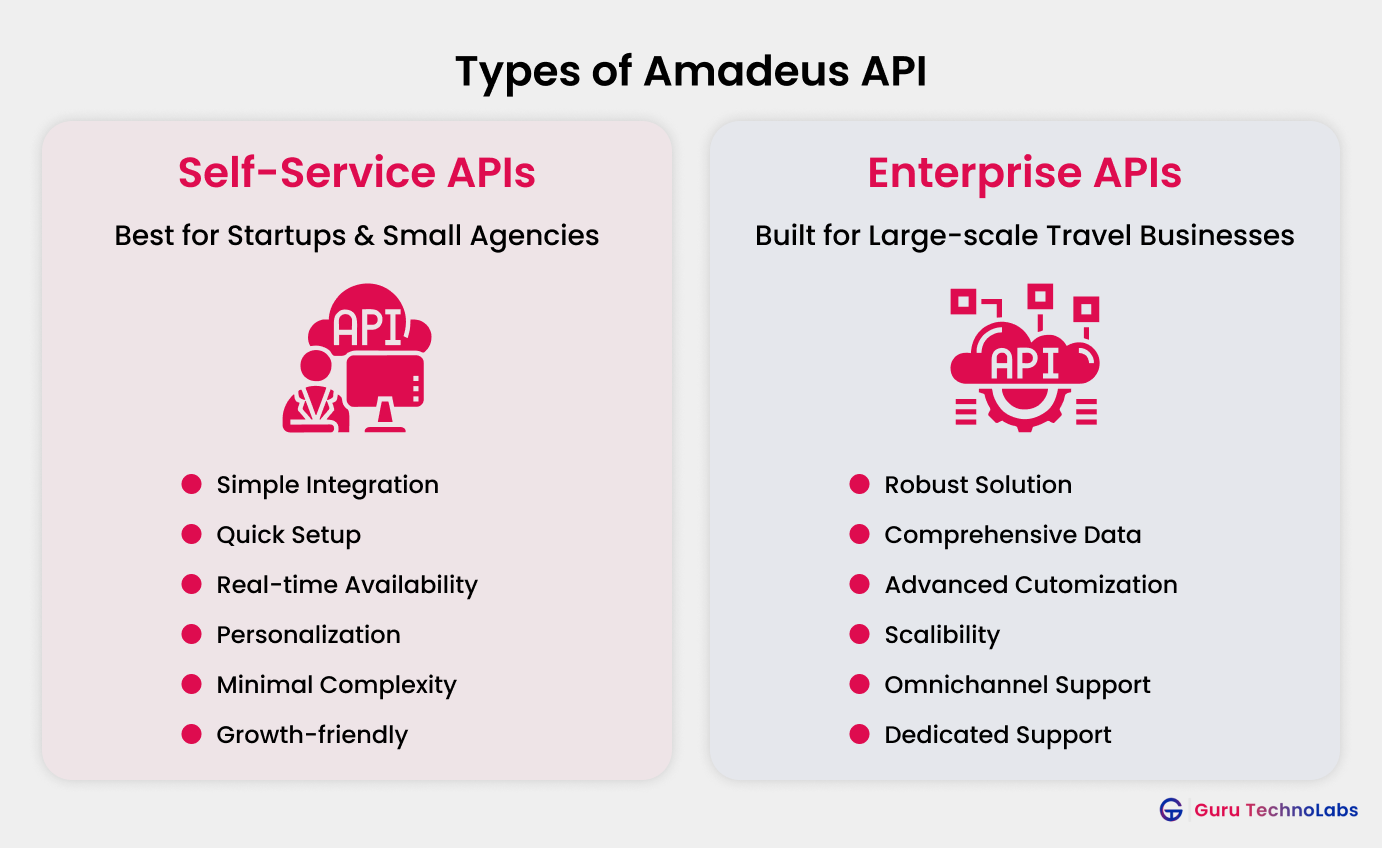
Benefits of Amadeus API Integration for Your Travel GDS Need
The Amadeus API gives travel agencies and OTAs a competitive edge by combining global travel content with easy-to-use technology. For businesses, this means faster operations, better customer experiences, and more opportunities to scale.
Access to a Global Travel Inventory
Amadeus provides extensive access to flights, hotels, car rentals, and other services globally, helping businesses offer well-suited travel options to their customers.
Scales With Your Business Needs
The Amadeus API is designed to adapt as your business grows. You can start small, offering just flights and then expand into hotels, car rentals, ancillaries, or advanced search features as customer demand increases.
Real-time Data and Analytics
The API delivers up-to-the-minute information on availability, pricing, and booking trends, supporting data-driven decision-making.
Easy Integration Process
Amadeus is designed for smooth integration into existing systems, reducing setup time and ensuring faster go-to-market.
Developer Support & Resources
It offers clear API documentation and robust support, enabling developers to build and maintain travel solutions efficiently.
Works With Third-Party Systems
Seamlessly connects with CRM, ERP, and other tools, allowing businesses to unify workflows and enhance operational efficiency.
Amadeus APIs also integrate smoothly with AI-driven pricing engines, recommendation systems, and fraud-detection tools, enabling smarter personalization and automation across the travel booking lifecycle.
Struggling to Integrate Amadeus API?
Don’t waste weeks figuring out complex workflows and documentation. We deliver smooth, cost-effective Amadeus API integration tailored to your travel business.
Step-by-Step Process of Amadeus API Integration into Your Travel Platform
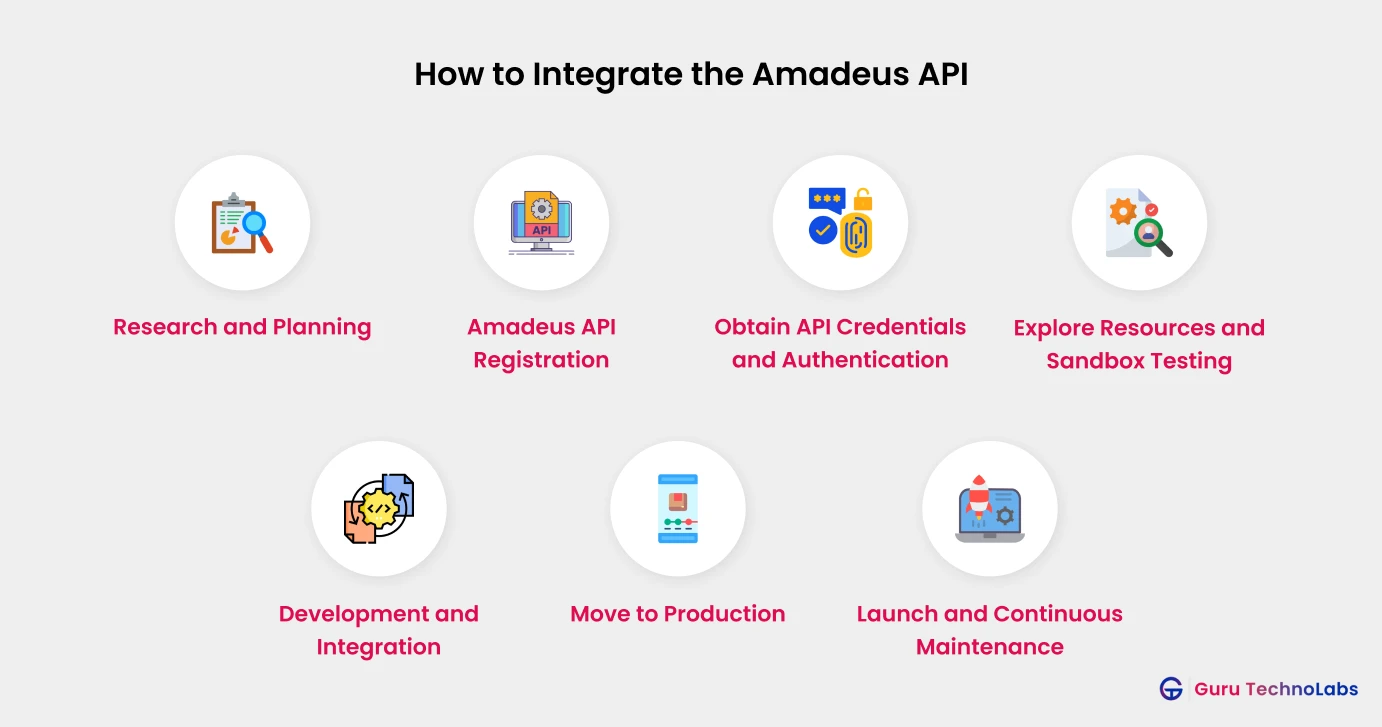
Now that we’ve explored the benefits, let’s walk through how to integrate the Amadeus API into your travel business. Whether you’re launching a new OTA or upgrading your existing booking system, this process gives you a clear understanding.
1. Plan Your Integration
- Identify your business needs and determine which Amadeus APIs (e.g., Flights, Hotels, Car Rentals) best fit your requirements.
- Review the Amadeus API documentation to understand available endpoints, data structures, and integration options.
2. Register on Amadeus Portal
- Sign up for an account on the Amadeus for Developers portal.
- Complete the registration by providing the necessary business information and agreeing to the terms of service.
- Request access to the specific APIs you wish to use, depending on whether you need Self-Service or Enterprise access.
3. Obtain API Credentials and Authentication
- Once registered, create an application in the Amadeus Developer Portal to generate your unique API key and secret.
- Use these credentials to authenticate via OAuth 2.0 and obtain an access token, which is required for making authorized API requests.
- Store your credentials securely and refresh your access token as needed.
4. Explore Resources and Sandbox Testing
- Access Amadeus’s sandbox (test) environment to experiment with API endpoints using your credentials.
- Use code samples, SDKs, and libraries provided by Amadeus for various programming languages such as Python, Java, Node.js, and more.
- Test typical workflows (e.g., search, price, book) to ensure your integration works as expected before going live.
5. Development & Integration
At this stage, developers like our experts will connect the Amadeus API to your platform. As a business owner, here’s what you need to know:
Implement booking flows: The standard process follows three steps
- Search – Retrieve flight, hotel, or car rental offers using dedicated endpoints such as the Flight Offers Search API, which returns real-time availability and pricing based on traveler preferences.
- Price – Confirm live availability and self-service or enterprise pricing details.
- Book – Finalize the reservation.
Each step builds on the previous one (e.g., the results from Search feed into Pricing, then into Booking). This ensures accuracy and reduces errors during live transactions.
Done right, this integration means your customers enjoy a smooth, real-time booking experience.
6. Move to Production
- Once api integration is stable in the sandbox, request production access by providing additional business and billing details.
- Await validation from Amadeus (typically up to 72 hours for the first app), then switch your credentials and endpoints to production mode.
7. Launch and Continuous Maintenance
Once testing is complete, it’s time to go live with the Amadeus API. Here’s what to focus on after launch:
- Go Live Confidently: Deploy your travel platform with the live Amadeus API, enabling customers to search, book, and pay in real time.
- Monitor & Optimize: Track API usage, watch for errors, and fine-tune performance (e.g., caching results, managing rate limits) to ensure a smooth user experience.
- Stay Updated: Amadeus frequently adds new features and updates its APIs. Keep your integration current so your platform remains reliable, competitive, and compliant.
Integration isn’t a one-time task, it’s an ongoing process that ensures your platform keeps delivering a seamless booking experience as your business grows.
Struggling to Turn These Steps Into Reality?
Integrating Amadeus API sounds simple on paper, but in practice, it requires technical expertise, error handling, and ongoing optimization. That’s where we step in.
Best Practices for a Successful Amadeus API Integration
To get the most out of your Amadeus API integration, following the key best practices is essential. These help ensure the system runs smoothly, securely, and remains aligned with evolving business needs. Let’s look at the practices that can make your integration both reliable and future-proof.
Ensuring Data Security
Always use secure HTTPS protocols and encrypt sensitive user data like payment details and personal information.
For example, when handling a hotel booking, ensure customer data is stored and transmitted securely using standard security practices such as token-based authentication.
Optimizing API Usage
Avoid unnecessary calls to the API to reduce latency and stay within rate limits. Cache static or rarely changing data—like airport codes or city names—to improve performance and reduce server load.
Manage rate limits effectively with batching requests and caching responses helps maintain consistent response times during high-traffic periods.
Maintaining Up-to-Date Integrations
Keep an eye on API version updates and documentation changes from Amadeus. For instance, if a new endpoint improves search speed or adds more filtering options, updating your integration can enhance user experience and keep your platform competitive.
Common Challenges and Solutions While Integrating Amadeus API into Your Platform
Integrating a travel API like Amadeus into your platform can bring incredible benefits, but it also comes with a few challenges. Here’s a look at the most common issues businesses face during Amadeus travel API integration, along with practical solutions in simple language.
Handling Complex Booking Scenarios
Travel API integration often involves managing complex booking flows, such as multi-city itineraries, group reservations, or combining different travel services like flights, hotels, and car rentals.
Solution:
Break down the booking process into clear steps and use middleware to manage workflows. Test each scenario thoroughly in the sandbox before going live with your travel API integration.
Limited Technical Expertise
Many travel businesses don’t have in-house developers who are familiar with travel API integration. This can lead to slow progress, frequent errors, or incomplete features.
Solution:
Hire developers or agencies experienced in Amadeus travel API integration. Leverage Amadeus documentation and SDKs to guide your team through the process.
Ensuring High Availability and Reliability
A travel booking platform needs to be available 24/7 and handle large numbers of users without downtime. Travel API integration can introduce complexity, and network issues or poorly managed API sessions can cause failures or slow responses.
Solution:
Implement error handling, retry logic, and monitoring tools to maintain uptime. Use load balancing and regular stress testing to ensure your travel API integration is robust.
Maintenance and Updates
Once your Amadeus travel API integration is live, it requires ongoing maintenance. Amadeus may update their APIs, change data formats, or introduce new features. Without regular updates, your integration could break or miss out on valuable enhancements.
Solution:
Schedule regular checks for API updates and security patches. Assign responsibility for monitoring Amadeus changes and updating your travel API integration promptly.
By understanding these common challenges and applying the suggested solutions, your Amadeus API integration will be smoother, more reliable, and ready to support your business as it grows.
How Much Does Amadeus API Integration Cost?
Amadeus offers a flexible pricing model for travel agencies and enterprises. However, since it operates one of the largest global distribution systems (GDS), the cost of API integration depends heavily on your specific business requirements.
If you’re a travel business owner exploring GDS integration, our detailed cost of GDS integration guide can help you understand the factors involved and plan your budget more effectively.
Here is the list of key factors of Amadeus API Integration:
- Licensing Fees: To access Amadeus APIs, agencies typically need to acquire an Amadeus provider license, which comes with its own fee.
- Self-Service API: Offers a pay-as-you-go model. Developers receive a free monthly quota of API calls (ranging from $200 to $10,000, depending on the API).
Once this quota is exceeded, charges apply per additional call, typically between €0.0008 and €0.025 (approximately $0.00078 to $0.024). - Developer Fees: Hiring developers for API integration can vary. In India, hourly rates for Amadeus API developers range from $18 to $45, while in the U.S. and Western Europe, rates can be between $50 to $150 per hour.
- Custom Solutions for Enterprises: Large enterprises or B2B marketplaces may negotiate custom agreements with Amadeus, which can include tailored pricing, dedicated support, and advanced features.
Do You Want to Estimate Your Amadeus API Integration Cost?
Avoid hidden fees and complexity. Our travel experts are here to integrate Amadeus API with clear pricing and cost-effective solutions.
Conclusion
Amadeus GDS is a powerful global distribution system that empowers travel companies, agencies, and enterprises to access a vast inventory of flights, hotels, car rentals, and other travel services in real time.
However, integrating Amadeus GDS and its travel API can be complex, especially if you lack technical expertise. Working with technology specialists like Guru TechnoLabs ensures your Amadeus API integration is smooth, secure, and up-to-date. Our GDS integration service helps travel businesses streamline connectivity with global suppliers, allowing you to focus on growing your travel business.
If you want to harness the full potential of Amadeus GDS and deliver exceptional travel solutions, contact us for expert support and a seamless integration experience.
Frequently Asked Questions
It is the process of connecting your travel platform to the Amadeus GDS API, enabling real-time access to global flight, hotel, and car rental inventory through a single interface.
It allows travel agencies, OTAs, and enterprises to implement core booking workflows, such as search, pricing, and reservation, while benefiting from Amadeus’s global distribution network and reliable data accuracy.
Not fully. The Self-Service API gives a limited monthly quota for free, but once you exceed it, you’ll pay per call. Enterprise APIs also come with license and usage costs.
Amadeus helps travel agencies, OTAs, and airlines search, price, book, and manage flights, hotels, and car rentals. It’s the backbone of many booking platforms.
Sign up on the Amadeus Developer Portal, get your API key, test in the sandbox (search, price, book), then move to production when ready.
Over 400 airlines, including Lufthansa, Air France-KLM, Emirates, Qatar Airways, Singapore Airlines, and British Airways.
Here is the difference between self-service api and enterprise api:
- Self-Service: Good for startups; pay-as-you-go, quick setup, limited support.
- Enterprise: Designed for large agencies; custom pricing, higher volumes, dedicated support.
Yes. You can integrate real-time hotel search, pricing, and booking into your platform.
Yes. It lets you offer live car rental availability, pricing, and bookings from global providers.




